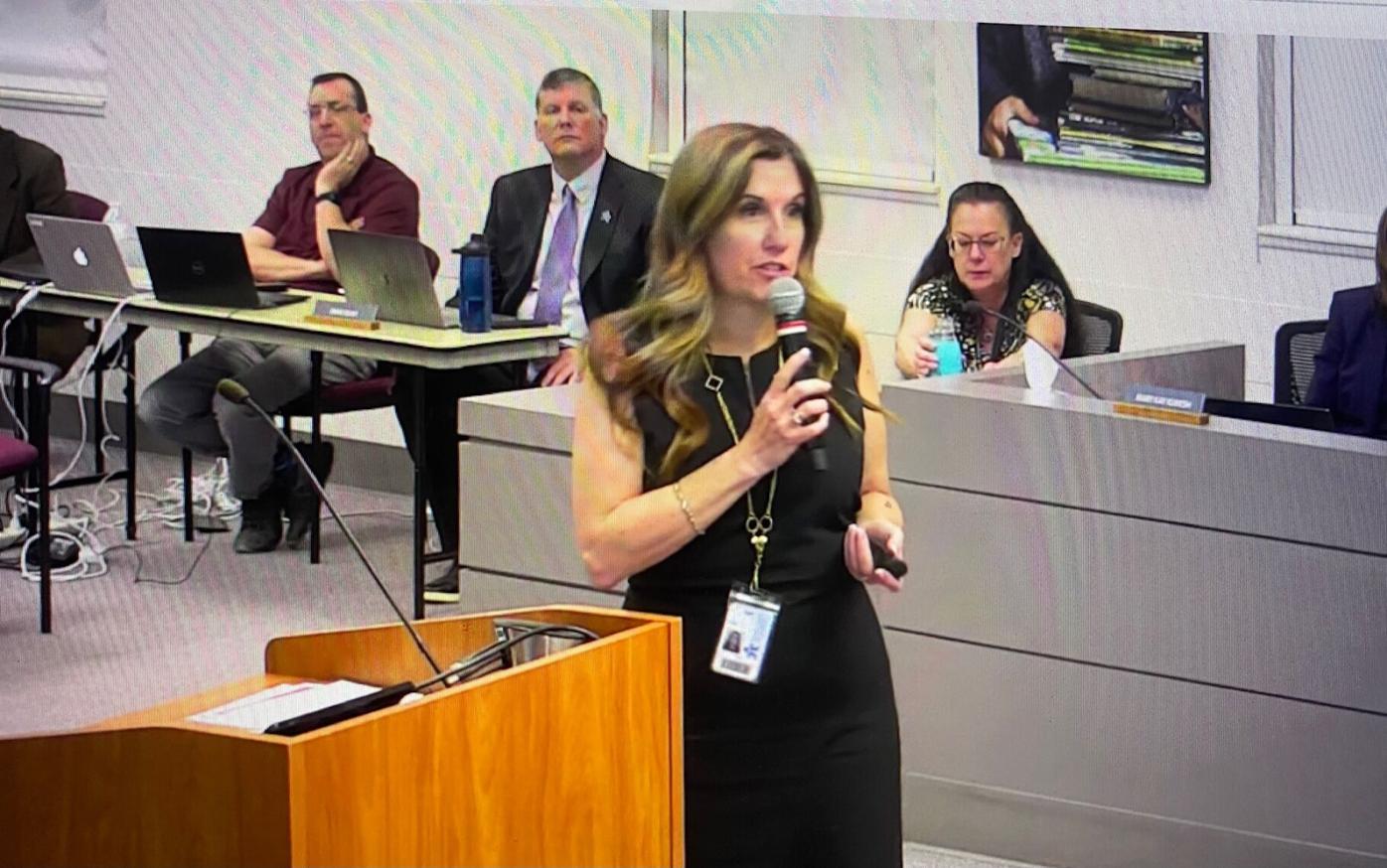Money for DougCo schools at 11th hour push
Last week as Douglas County School Board President Mike Peterson was doing some last-minute neighborhood stumping for the district’s mill levy override and bond issues, a voter asked him “Why should I trust a guy on that B.S. board?”
It’s a question many Douglas County voters may be asking after nearly a year of tumult between majority and minority board members including the ousting of the former superintendent and allegations of secret meetings.
At issue is a $60 million mill levy override and $450 million bond which voters will see listed as 5A and 5B on the Nov. 8 ballot. The taxes will mean more money for teachers, three new schools in areas with an exploding population and improvements to the Douglas County School District’s 111 buildings.
Though Peterson and the other six board members have not always agreed on ideology, they do agree 7-0 on this issue.
They have formed a posse lately, walking neighborhoods as citizens to explain the formula of both issues to voters who are skeptical of any new taxes.
District leaders realized what they were up against last May when a New Bridge Strategy Poll showed that only 39% of 400 Douglas County respondents would vote for funding in the upcoming election and the 43% who indicated they were not in favor of spending the money said that they would not change their minds even if they were given more information as to why the district needs it.
Douglas County School Board Superintendent Erin Kane admits that education over issues like this shouldn’t be “a panic before an election.” She was selected by the board last March and started in April, and she has done some door-knocking of her own at this eleventh hour to educate voters who rarely love being asked for money.
The biggest pushback from taxpayers, according to Long Range Planning Committee member Brad Geiger?
“There’s a subset of people in Douglas County who don’t like paying taxes or who don’t like public schools,” he explained.
The mill levy override would mean that Douglas County homeowners would pay an extra $250 per year on a $500,000 home. According to the latest numbers from the U.S. Census Bureau, the average price of a home in the state’s wealthiest county is $493,500.
But retaining quality staff is imperative and Douglas County workers make less than those in some of the comparative districts.
For example, the average annual salary for a Douglas County teacher is $57,919, compared to the $76,050 yearly pay of an educator in the Cherry Creek School District.
Passing the MLO would help reduce that disparity.
Douglas County raises $1,100 per year for each of its 64,000 students through the existing mill levy override. That’s compared to the $3,100 per-student the Cherry Creek School District receives from its MLO.
It’s been four years since the county passed an MLO and bond issue. The money allocated in 2018 went to several projects including a new FPod at Castleview High School which created state-of-the-art educational spaces.
With the 2018 funds, DCSD also bought the Wildlife Experience building to create a $40 million center where students who opt not to go to college can learn technical and career skills.
Geiger compared the project to a shop class on steroids.
“It’s shop with a purpose. It’s real-world experience for kids who want to learn about things like mechanics or computers.”
The message Geiger and Kane et al is trying to deliver can be complicated.
Kane broke the numbers down in a text to The Denver Gazette:
“If Douglas County taxpayers pass 5A, they will see an extra $1 per week per $100,000 in home value. For a $500K home, this would amount to a surplus of $255 per year,” she wrote. “Because 5A is a fixed dollar amount at $60 million, the impact will not increase when assessed values go up. Over time, the impact on any individual home owner will decrease as the $60 million is spread over more homeowners.”
If taxpayers pass 5B, there will be no change in taxpayers’ current tax burden. If 5B fails, homeowners will see a slight decrease in taxes at a rate of $10 per year per $100 thousand home value.
With a week and a half to go before the election, some citizens have already voted and others are deciding now. Kane said she is ready for whatever tomorrow brings.
“At the end of the day it’s up to our voters. We will follow their marching orders,” said Kane. “If 5A and B do not pass, we will continue. We just can’t stop running.”





